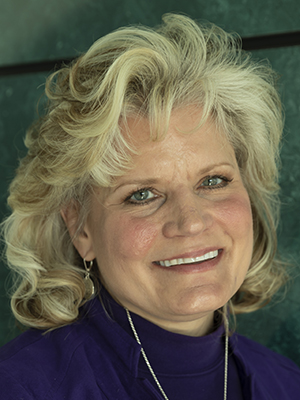Wayne State University Law School LAPC Director and Associate Clinical Professor Kathryn Smolinski has been named a recipient of the 2023 Wayne State University President's Award for Excellence in Teaching
The President's Awards for Excellence in Teaching recognizes faculty members who have made outstanding contributions to teaching. Since 1977, 308 WSU faculty members have been recognized for their teaching with this award. The 10 recipients of the prestigious award were honored during the Academic Recognition Award Ceremony on April 23, 2023.
“It is truly and honor to receive such a prestigious award. I am blessed to have amazing, dedicated students who want to learn and help the cancer community,” Smolinski said of receiving the honor, adding, “Their compassion, wisdom and hard work have made me a better teacher and a better person. My colleagues have been instrumental in supporting me to be the best professor I can be.”
In a letter of support for Christopher Lund--Associate Dean for Research and Faculty Development wrote that, “Professor Smolinski not only gives her students training in the law, but she combines it with practical wisdom and a strong sense of justice, engaging her students through innovative instructional practices that help them grow into skilled, thoughtful and compassionate lawyers.”
LAPC is a medical-legal partnership with The Karmanos Cancer Center. It is a six-credit course offering for students to learn how to support patients with cancer in managing legal issues. The clinic grew out of a medical-legal partnership Smolinski created through a two-year Equal Justice Works Fellowship she was awarded while a third-year Wayne Law student.

Before attending law school, she worked for 20 years as an oncology social worker, including serving as executive director of the Association of Oncology Social Work and as a senior oncology social worker at The Sidney Kimmel Comprehensive Cancer Center at Johns Hopkins in Baltimore.
She earned a Bachelor of Arts in psychology and English and a Master of Social Work degree from the University of Michigan, as well as a law degree from Wayne Law.
“Like all of our clinics, we help those who otherwise couldn't afford an attorney. That's part of the way we give back to the community. And so our students benefit by being able to learn the law and apply it and the community benefits by having access to those services,” Smolinski explains.
However, given that the clinic serves people who are ill—sometimes seriously ill, there is an additional component to be taught in addition to legal skills: care and compassion.
“I have to model compassion for my students, and I also have to be compassionate towards them, because they're going through a lot. They are trying to get through law school and learn what it means to practice law. And I think students who choose this clinic either choose it because it has some meaning for them, whether they had a close friend or family member diagnosed with cancer, or they just want to give back to the community. Or they want to expand their knowledge in different areas of law, but they they're choosing this clinic, because it's something special to them,” Smolinski explains.
Smolinski describes her teaching style as “very, very interactive.”
In her letter of support for Smolinski’s award, Rebecca Robichaud, Assistant (Clinical) Professor and Director of Clinical Education wrote, “Professor Smolinski brings her expertise in end-of-life planning into the classroom to provide a foundation for students working with very ill patients and their families and loved ones. But her skill goes beyond teaching students the substantive law. Professor Smolinski is very adept at teaching students how to build effective working relationships with clients, how to work through challenging situations such as terminal cancer diagnosis, and how to build skills to have longevity and find joy in a very difficult career.”
“The students need to learn by doing, especially in clinic situations, so we have a lot of different exercises in the seminar part of the class. For example, interviewing and legal counseling-- then we t do a lot of mock interviews and mock counseling sessions in the seminar class, so they learn how to do it and then they continue to hone these skills with their clinic clients.”
She also meets with each student in the class weekly to provide them with supervision and to ask them about their cases, their thought processes, and sometimes even about how they are taking care of themselves. “These are students who have clients who are very sick. And it just brings up all kinds of scenarios for them--as far as trying to do things in a very timely way. They may need to get something done before somebody goes into surgery. So, it may be necessary to help them reorganize their caseload, reorganize their priorities.”
She adds, “And I will tell you, I'm so inspired by the students that choose this clinic every semester as every semester is a whole new crew. And they're just wonderful. They're just committed, dedicated, passionate, compassionate, smart, they're energetic, and it's quite impressive. It's quite impressive to see just the breadth of knowledge and the depth of compassion that each student brings.”
*This interview has been edited for clarity.